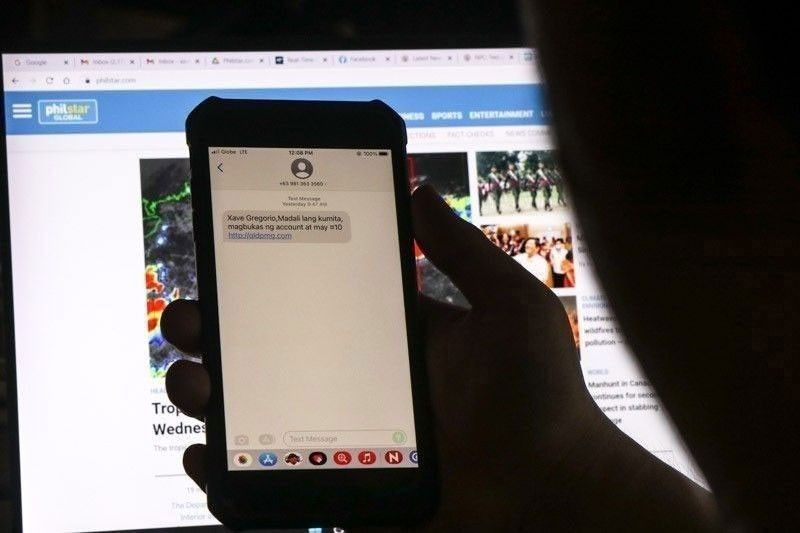Telcos warn of new wave of text scams

MANILA, Philippines — A group made up of the country’s largest telcos is warning the public about a new wave of messaging scams that can reach subscribers without passing through filtering systems.
In a statement, the Philippine Chamber of Telecommunication Operators (PCTO) urged industry players and state regulators to work together in stopping new fraud activities.
PCTO president and Globe general counsel Froilan Castelo said cybercriminals have found a way to circumvent the online walls put up by telcos to prevent text scams from circulating within their networks.
For instance, Castelo said cybercriminals send out messaging scams to their targets through chat apps and over-the-top channels that are no longer within the bounds of telco filters. Usually, they use foreign SIMs to avoid detection by public and private monitors in the Philippines.
Apart from this, PCTO warned about the growing use of fake cell towers that target subscribers in a particular area. Through this method, cybercriminals intercept cellular signals to connect to mobile numbers, giving them the window to send out text scams.
Recently, PCTO has also noticed a rise in spoofing, wherein fraudsters imitate the advisories and messages coming from reputable sources like banks and e-wallets.
Once victims click on a spoofing link, they will be redirected to an external site that can capture sensitive information, such as financial details.
“This new wave of scam messages is worrisome as fraudsters have resorted to methods which do not pass through telco networks. Thus they are able to evade already robust filters,” Castelo said.
On their own, telcos are finding ways to combat the emerging methods of digital fraud. In particular, they want to cut off the sources by preventing the importation of spoofing devices.
In 2022, telco-to-tech giant Globe Telecom Inc. started blocking person-to-person texts with links to minimize opportunities for cybercriminals to spread their scam sites. Likewise, mobile leader Smart Communications Inc. has tightened its security measures, blocking more than 500 million smishing messages as of May.
Castelo reminded consumers that the first line of defense will always be them, as they can choose to weaken the fraud market by ignoring unsolicited messages.
“Be vigilant and be discerning against messages from unknown numbers, and never click on any link inside unsolicited messages [because] more often than not, these are meant to defraud you,” Castelo said.
- Latest
- Trending




























